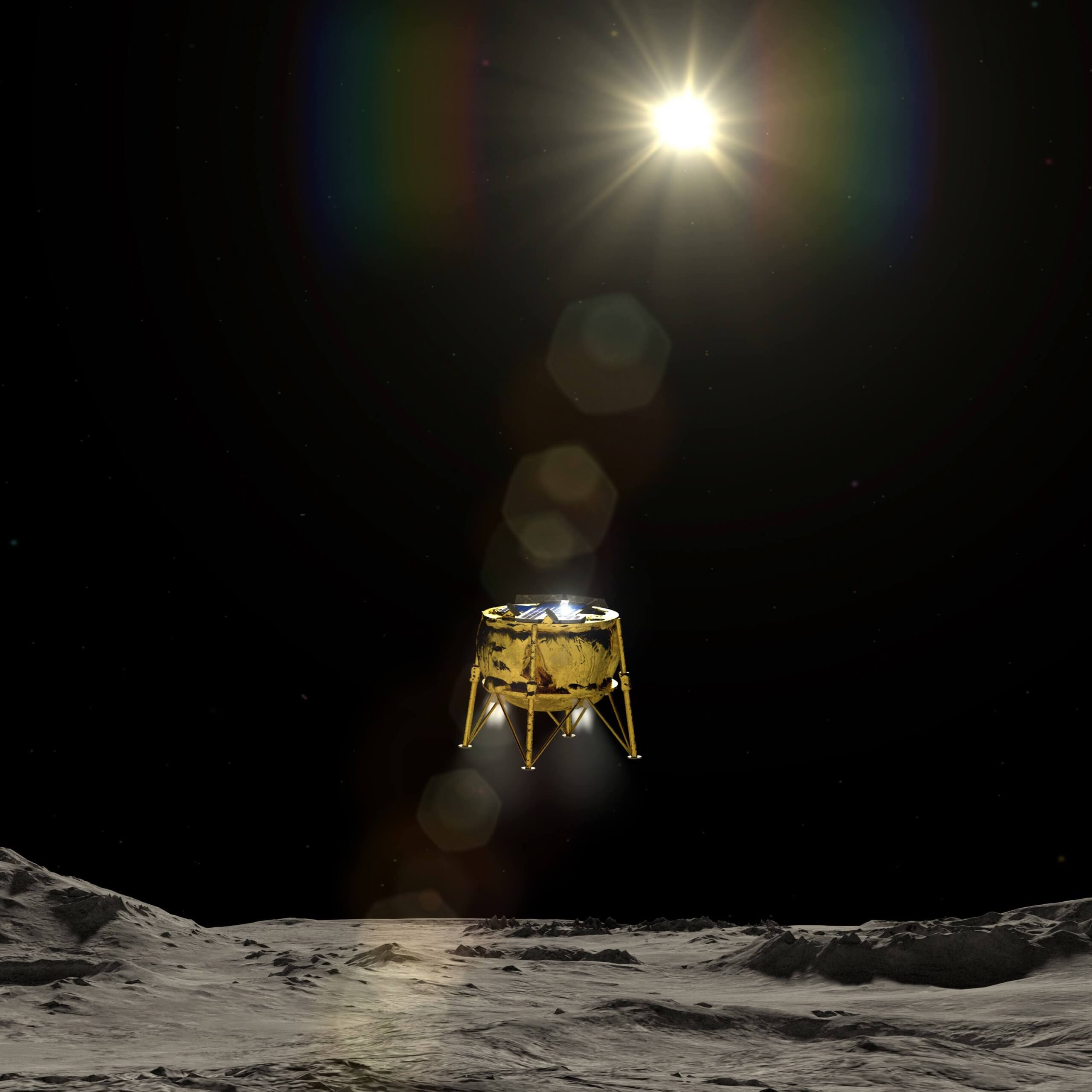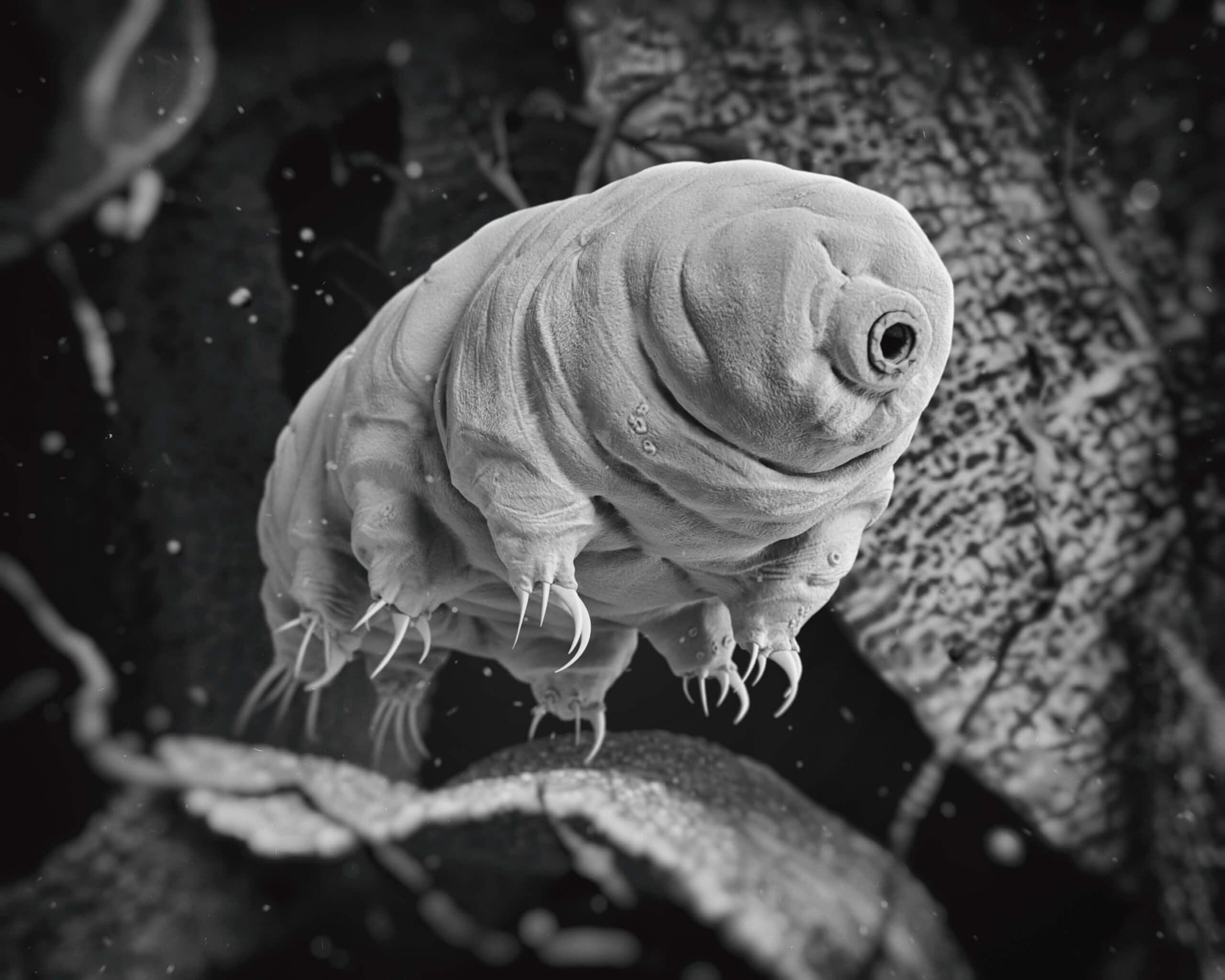Facepalm: When Israel sent its lunar lander to the moon earlier this year, there were some biological stowaways onboard. Specifically, microscopic organisms called tardigrades were carried up and may have scattered after the craft crashed.
Back in February, Israeli space startup SpaceIL launched a lunar lander, called Beresheet, on a SpaceX rocket. It would be the nation’s first attempt at landing a vessel on the moon. However, in April, the craft crashed while trying to land and ended the mission.
The lander carried a NASA cargo of equipment to measure the moon’s magnetosphere. It also had some reflectors that would have allowed scientists to take precise measurements of the distance between the Earth and its only natural satellite.
In addition to the NASA cargo, a US nonprofit called the Arch Mission Foundation had stowed a 30-million-page digital library of human knowledge onboard the vessel. The Verge notes the organization’s objective is to establish a digital and biological “backup of planet Earth” in space. The library of information was declared and approved by mission officials.

What was not declared or approved, was a payload containing human DNA and a cache of microscopic organisms called tardigrades, also known as water bears. While it is not technically against international guidelines to send bio-matter into space or to the moon, no governing body was even made aware of the cargo.
“We didn’t tell them we were putting life in this thing,” Arch Mission Foundation Co-founder Nova Spivack told Mashable. “Space agencies don’t like last-minute changes. So we just decided to take the risk.”
He had not initially planned to send DNA, or the water bears up on Beresheet. Those plans were slated for future missions. However, a few weeks before Spivack was to deliver the digital library to SpaceIL, he and another engineer decided to go ahead. They stowed hair follicles, blood samples, dehydrated tardigrades, and a few other samples of genetic Earth-bound bio-matter packed in resin between the plates of the digital library.
When Beresheet crashed, there was a moment of shock.
“For the first 24 hours we were just in shock,” said Spivack. “We sort of expected that it would be successful. We knew there were risks, but we didn’t think the risks were that significant.”

Wired notes that Spivack’s initial fear was that they had just contaminated the moon with a foreign organism. Although most organic lifeforms could not survive on the moon, water bears are known to thrive in extreme environments including vacuums. Whether water bears could survive the radiation is unclear, but as they are in a dormant dehydrated state and encased in resin. There is no chance they will be revived without human intervention.
As previously noted, Spivack did not break any international rules, and no penalties are forthcoming thus far. However, the FAA has some jurisdiction over the matter as does the US State Department. The FAA said it was “looking into” it, and the State Department declined to comment.
"Technically, I’m the first space pirate," Spivack quipped.
The incident does raise some questions about what exactly is okay to send to space and who gets to decide. It’s not a question that has not been asked before, but nobody has come up with an answer that has not been hotly debated.
https://www.techspot.com/news/81487-failed-israeli-lunar-lander-beresheet-had-secret-biological.html
2019-08-16 19:02:00Z
CBMiZGh0dHBzOi8vd3d3LnRlY2hzcG90LmNvbS9uZXdzLzgxNDg3LWZhaWxlZC1pc3JhZWxpLWx1bmFyLWxhbmRlci1iZXJlc2hlZXQtaGFkLXNlY3JldC1iaW9sb2dpY2FsLmh0bWzSAWhodHRwczovL3d3dy50ZWNoc3BvdC5jb20vYW1wL25ld3MvODE0ODctZmFpbGVkLWlzcmFlbGktbHVuYXItbGFuZGVyLWJlcmVzaGVldC1oYWQtc2VjcmV0LWJpb2xvZ2ljYWwuaHRtbA
Bagikan Berita Ini
















0 Response to "Failed Israeli lunar lander Beresheet had a secret biological payload - TechSpot"
Post a Comment